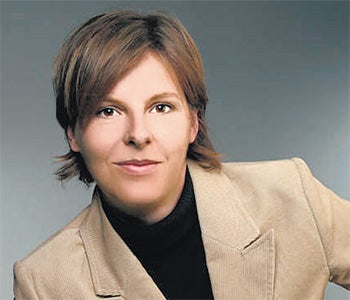No (learning) distance too great
Distance-learning MBAs offer fantastic flexibility

Hendrik de Hertogh, 43, from Vilvoorde, near Brussels, had been a senior manager in various document-related multinationals before setting up his own consultancy in 2002 – but experience wasn't quite enough. He needed some academic input.
"Having met a number of highly competent MBAs, I wanted to be at the same level as them," he says. On-campus training was impossible – he spent too much time travelling. The answer? A distance-learning MBA.
"But I wanted a degree from an accredited bricks-and-mortar organisation," he says, "not some completely virtual entity."
Liverpool University Management School fitted the bill and de Hertogh graduated last December, after two and a half years.
The course, provided in partnership with Laureate, a global educational company, took him between 15 and 18 hours a week, with a professor and 20 fellow students assigned to each of the eight modules. "There's no physical contact, but the university provides an electronic platform that helps you contact your fellow students, exchange papers and submit your work. In fact we were graded both on our research and our discussions," says de Hertogh.
In Britain more people now enrol for distance- and blended-learning MBAs than for full-time courses, according to research by the Association of MBAs. These flexible programmes are run at least partly online, sometimes using split screens and podcasts, and allow students to study at their own pace, within limits, while holding down a job. A distance-learning MBA can also score highly with employers, if it is combined with appropriate experience. More than 2,500 such students graduated in Britain in 2007, and their achievement is all the greater because such study is often solitary. "I'm married with two children," says de Hertogh, "and for each module I was completely off the social radar." Distance-learning can be tough, so prospective students should always ask about drop-out rates.
The trend is towards blended learning, in which content is delivered in a variety of ways. Some very popular MBAs, such as those of Phoenix and Heriott-Watt universities, can be taken completely online. More traditional, accredited providers such as Henley, Durham and Warwick business schools, insist on a residential element.
"The eight-day course here each September adds another dimension," says Sue Beech, programme manager for Warwick's distance-learning MBA, which has about 1,700 students. "It gives people a chance to interact with fellow students from all over the globe."
Warwick's three-year course will costs £5,200 a year from this autumn. The price of distance learning usually reflects the amount of academic preparation and contact involved. A year's Open University Business School (OUBS) MBA coursework can cost up to £4m to develop, says Professor James Fleck of the OUBS. "Other schools provide books written by single authors and then they examine. But individuals have limitations. All our programmes are written by teams of academics, a far more robust approach."
About 6,000 students are currently taking the OUBS MBA, a third of them outside the UK and many of them in the far reaches of Russia. One student sat his (carefully monitored) exams in a submarine on the ocean floor.
The OUBS coursework is updated routinely every year. "But students will often drive the content through their own case studies," says Fleck. The school is currently piloting online coursework. "Online you get a clear sense of intimacy with the people you're working with."
But Fleck believes residential schools will always have a place – as will ever-portable paper textbooks: "One student told me he did all his work on the loo."
Above all, distance-learning offers flexibility. Marianna Knirsch, who has been working with the German Red Cross in China's earthquake-affected areas, started a distance-learning MBA at Durham Business School while living in Uganda. She completed it in South Africa – and in the meantime had two children."It really helped that in both countries I was living in the capital cities, so I had easy access to the exam centres," she says.
Join our commenting forum
Join thought-provoking conversations, follow other Independent readers and see their replies
Comments
Bookmark popover
Removed from bookmarks